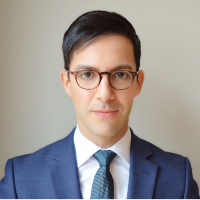One Year After Mahsa Amini’s Death: The Impact of Female Protests in Iran
Submit a question
One year following the tragic death of Mahsa Amini, a 22-year-old Kurdish woman who died in the custody of the Islamic Republic's morality police, the Middle East Program hosted Haleh Esfandiari, Ali Vaez, and Henry Rome in conversation with USIP-Wilson Center Distinguished Fellow Robin Wright to examine the current state of the protest movement that her death sparked and the impact that it has had on the country in the last year.
In exploring the state of Iranian politics, economic situation, and diplomatic engagement over the last year, the panelists addressed both internal and external challenges facing the Iranian regime, including engagement with the United States on the eve of President Raisi's trip to the U.S. for the U.N. General Assembly this month.
Impact of the protests on the Iranian Regime
Moderator Robin Wright outlined at the start that the protest movement that swept across Iran following Mahsa's death was not a spontaneous event but rather part of six years of accelerating demonstrations. In this regard, MEP Distinguished Fellow Haleh Esfandiari emphasized, "The movement is not dead; it is not even dormant; it is there to stay." As the regime has continued to arrest journalists and activists and purge academics from universities, the younger generation throughout Iran continues to desire a different system and future.
Ali Vaez, Senior Adviser to the President and Project Director for Iran at the International Crisis Group, explained that over the last six years, and specifically following the protests of the last year, "The regime has given up on the majority of the Iranian people who have in turn given up on the regime." He stressed that as the regime has increasingly relied on a system of exclusionary politics, the state has and will continue to become more militarized. While the IRGC can be viewed as more pragmatic than the clerical leadership on some issues, they are more problematic on others, such as their desire to militarize nuclear technology.
Iran's economy
Economically, Iran is faring better than it was during the height of the protests last year, but it still faces both acute and structural vulnerabilities. Henry Rome, Senior Fellow at the Washington Institute for Near East Policy, explained that Iran's oil exports have increased significantly, accounting for a quarter of government revenue. Despite this increase, Iran continues to struggle with an annual inflation of 40%, with the price of meat more than doubling in the last year. Structurally, Iran has come to rely heavily on China for its export and import economies, has damaged the digital economy with persistent repression of internet services, and has done little to prepare for the impacts that the changing climate will have on the economy, particularly in the agricultural sector.
Diplomatic engagement and nuclear weapons
Henry Rome noted the "remarkable dichotomy between Iran's external environment, which continues to improve, and its internal environment, which remains quite fraught," referring to Iran's engagement with Saudi Arabia and its ability to join both BRICS and the Shanghai Cooperation Organization over the last year. He also emphasized, however, that these diplomatic achievements are unlikely to yield any meaningful economic benefits due to U.S. sanctions that restrict other nations' engagement with Iran.
Further, the panelists discussed the forthcoming hostage deal between the U.S. and Iran that will release five detained Americans in exchange for five imprisoned Iranians and allow for potential Iranian access to $6 billion in revenue that Qatar will manage for humanitarian purposes. Ali Vaez indicated that this exchange will likely lead to greater diplomatic engagement, and he anticipates that nuclear negotiations will resume in the coming weeks, perhaps on the sidelines of UNGA's annual meeting. Regarding the nuclear issue and connecting it to the protests of the last year, Vaez stressed that "A regime that has blinded hundreds of protestors with rubber bullets cannot be trusted with nuclear weapons; it is as simple as that."
Speakers



Introduction

Moderator

Hosted By

Middle East Program
The Wilson Center’s Middle East Program serves as a crucial resource for the policymaking community and beyond, providing analyses and research that helps inform US foreign policymaking, stimulates public debate, and expands knowledge about issues in the wider Middle East and North Africa (MENA) region. Read more


Middle East Women's Initiative
The Middle East Women's Initiative (MEWI) promotes the empowerment of women in the region through an open and inclusive dialogue with women leaders from the Middle East and continuous research. Read more
